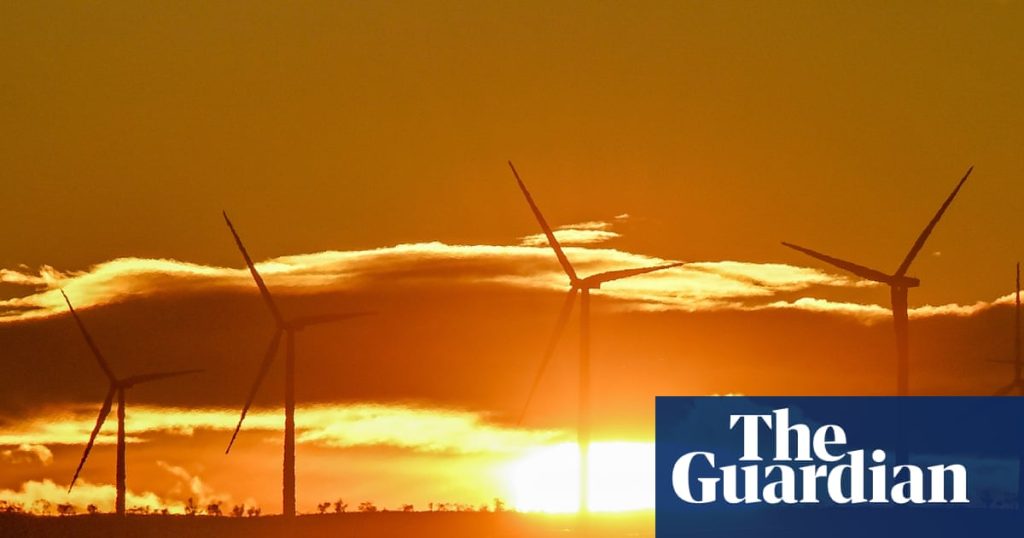Labor’s grassroots environmental action network wants the Albanese government to adopt a 2035 emissions reduction target of at least 70% as a show of global climate action leadership, countering warnings from big business about the cost of such a goal.
In her first interview as the new co-convener of Labor Environment Action Network (Lean), Louise Crawford also said she had faith the government would finally deliver long-awaited reforms to the Environment Protection and Biodiversity Conservation (EPBC) Act after plans collapsed in the previous term.
The prime minister is expected to unveil Australia’s 2035 emissions reduction target next week after cabinet weighs up final advice from the Climate Change Authority.
The authority’s preliminary advice suggested a target between 65% and 75% would be ambitious but achievable.
The Business Council of Australia issued a veiled warning to the government about pursuing that scale of decarbonisation in the next decade, publishing modelling suggesting up to $530bn of capital investment would be needed to reach a target of 70% or more.
But Crawford said there was a “cost of not being ambitious” as she confirmed Lean’s view that the target “should start with a seven”.
Sign up: AU Breaking News email
She said the target, which Albanese would, if confirmed next week, promote to the UN general assembly leaders’ summit later this month, presented an opportunity for Australia to demonstrate global leadership.
“We know the government is in this really tricky, messy implementation phase of completely reordering the economy and our energy system – so we are under illusions on how hard it is,” she told Guardian Australia.
“But we do think, especially where the world’s not as strong as it has been in terms of this (climate targets), that Australia has a key leadership role. And we think starting with a seven is a good marker in that to the international community.”
Crawford was elected co-convener at Lean’s annual general meeting on Monday night to replace Felicity Wade, who stepped down after 12 years as the public face of the influential internal Labor lobby group.
Wade led the group’s years-long campaign for changes to the EPBC Act, including the creation of an environmental protection agency, and was left devastated after Albanese controversially shelved plans to deliver them prior to the last election.
Those plans have since been resurrected, albeit in a new form, with the new environment minister, Murray Watt, planning to introduce legislation to parliament before the end of the year.
On Tuesday, Watt confirmed the new laws would create development “no-go” zones under a regional planning system.
But other elements remain unresolved, including the design of national standards, the powers of the EPA and whether or not climate impacts would need to be considered as part of project assessments.
Crawford said Lean’s advocacy would focus on three priorities: the retention of ministerial decision-making powers on matters of national significance, a strong set of national standards and the removal of all exemptions, including those for native forest logging under regional forestry agreements.
She was not opposed to some consideration of climate impact in environmental laws but said it was “not the main game”, backing in the government’s long-held view that the safeguard mechanism was an appropriate policy to manage pollution.
Fronting reporters at the Smart Energy Queensland conference, Watt said he was still consulting on how the laws might deal with greenhouse gas emissions.
But Watt said he was “leaning towards” adopting the view of Prof Graeme Samuel, whose review of the EPBC Act did not recommend a so-called climate trigger but rather a requirement that proponents disclose the full emissions profile of their projects upfront.
Crawford said the upcoming debate represented a “once-in-generation opportunity” to rewrite the nation’s John Howard-era nature laws.
“And we known that biodiversity is in just as much crisis as climate,” she said.

